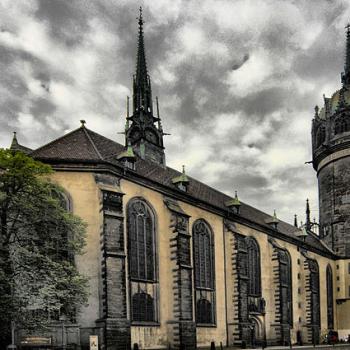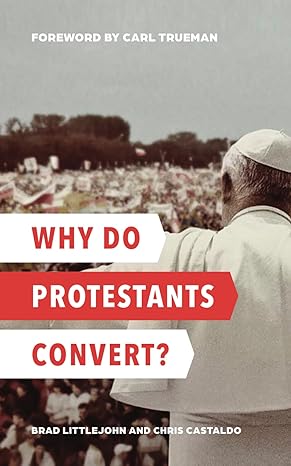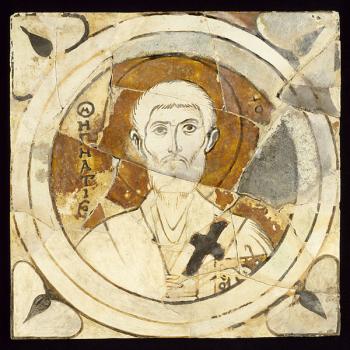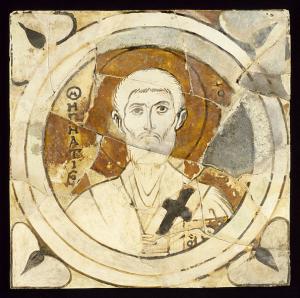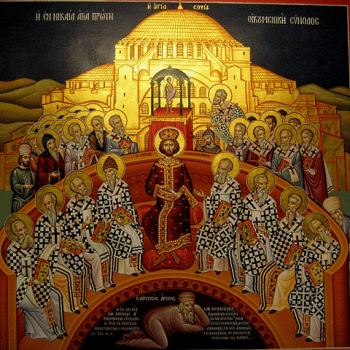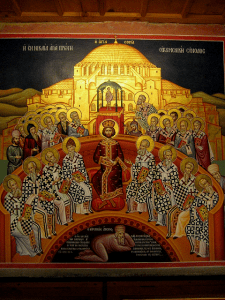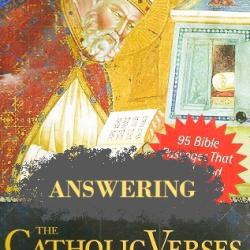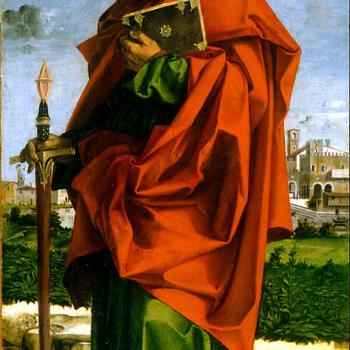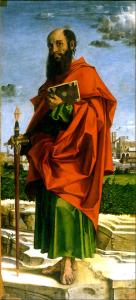Including “Straight Talk” on the Catholic and Protestant Inquisitions
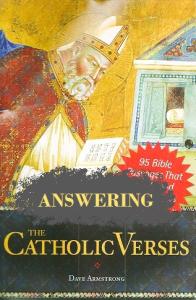
[see book and purchase information for The Catholic Verses]
“excatholic4christ” (Tom) was raised Catholic, lost his faith in high school, attended Mass for a while after he married and had children, and then “accepted Jesus Christ” as his Savior, leading to his sole attendance at an independent fundamental Baptist church for eight years. He claims that the “legalism” of this church and the fact that his “trust had been in men rather than God” caused him to “walk away from the Lord for 23 years.” He “returned to the Lord” in 2014. As of April 2020, Tom stated that he was “somewhere in the middle of the Calvinism-Arminianism debate,” but “closer to Calvinism.” I couldn’t determine his denomination. See Tom’s index of all of his replies. I will now systematically refute them. His words will be in blue. When he cites my words, they will be in black. I use RSV, unless otherwise specified.
*****
This is a reply to Tom’s article, Catholic “Unity” and Denominationalism? (9-10-18).
Citing the seven passages below, Armstrong argues that the multiplicity of divisions within Protestantism is a bad thing:
John 17:20-23: “’I do not pray for these only, but also for those who believe in me through their word, that they may all be one; even as thou, Father, art in me, and I in thee, that they also may be in us, so that the world may believe that thou hast sent me. The glory which thou hast given me I have given to them, that they may be one even as we are one,’”
1 Corinthians 11:18-19: “For, in the first place, when you assemble as a church, I hear that there are divisions among you; and I partly believe it, for there must be factions among you in order that those who are genuine among you may be recognized.”
Romans 16:17: “I appeal to you, brethren, to take note of those who create dissensions and difficulties, in opposition to the doctrine which you have been taught; avoid them.”
1 Corinthians 1:10-13: “I appeal to you, brethren, by the name of our Lord Jesus Christ, that all of you agree and that there be no dissensions among you, but that you be united in the same mind and the same judgment. For it has been reported to me by Chloe’s people that there is quarreling among you, my brethren. What I mean is that each one of you says, ‘I belong to Paul,’ or ‘I belong to Apollos,’ or ‘I belong to Cephas,’ or ‘I belong to Christ.’ Is Christ divided? Was Paul crucified for you? Or were you baptized in the name of Paul?”
1 Corinthians 3:3-4: “for you are still of the flesh. For while there is jealousy and strife among you, are you not of the flesh, and behaving like ordinary men? For when one says, ‘I belong to Paul,’ and another, ‘I belong to Apollos,’ are you not merely men?
1 Corinthians 12:25: “that there may be no discord in the body, but that the members may have the same care for one another.”
Philippians 2:2: “complete my joy by being of the same mind, having the same love, being in full accord and of one mind.”
The biblical data in this respect is so overwhelming that Tom decided to actually cite one of the seven passages in full, and to link to the other six.
Directly beneath John 17:20-23, Armstrong writes, “The Catholic position on Christian unity is fully in accord with biblical texts like this one. We believe that doctrine should be unified and that all Christians should be of one mind and spirit. It is to uphold this biblical injunction that we believe in dogma, hierarchical authority, apostolic Tradition, and a papacy. One may think what he will about all that, but it cannot be denied that Catholicism has traditionally been highly concerned with oneness of doctrine and avoidance of sectarianism and division.” p. 21.
Elsewhere he states, “In my opinion, this (i.e., division and denominationalism) is one of the most compelling and unanswerable disproofs of Protestantism as a system to be found in the Bible.” p. 25.
I completely agree with Armstrong regarding the Bible passages quoted above, that the Lord Jesus Christ and the apostles desired that all Christians be united in doctrine and practice, . . .
This is very significant because, with this statement, Tom concedes the entire argument. Denominationalism (which necessarily — by nature — entails multiple conflicting doctrines, and hence much error, since two contradictory beliefs cannot both be correct) can’t be defended from Holy Scripture. I do give him a lot of credit for honestly recognizing this.
but there were tremendous challenges to that ideal from the very beginning. In his epistles, apostle Paul, relates that he was already alarmed at the Judaizers who were entering into the church and subverting the Gospel by insisting on works being added to grace.
The discussion is already over with, based on his previous sweeping concession. But Tom can’t stop with his concession and agreement, because then he would have no reply at all. Note, then, what he does next. Protestants, in dealing with denominationalism, almost always move from the biblical command and ideal, to the actual state of affairs. This is one of their many fatal errors. In effect, Protestants reason that “we can’t possibly live up to what we are commanded about unity, so we will invent new institutional structures that ignore and rationalize away these biblical commands.”
If we treated other doctrines in the Bible like this, the situation would be far worse than it is already. No Christian says, for example, that we can’t possibly live up to the prohibition of fornication and adultery, so we just have to accept fallen human nature as it is (“boys will be boys” etc.). That’s the world’s mentality: teenagers and young adults can’t possibly be sexually pure and abstinent. This is a lie. I have four children, ages 21-32, and they all did so (as my wife and I also did). So do many millions of other Christian unmarried young people. Christianity always requires a striving to live up to God’s sublime level of teaching and behavior, by His grace. What He commands us to do, He gives us the power and ability to do. This includes Christian unity and adherence to one unified body of doctrinal and moral truth, not multiple hundreds of competing, contradictory belief-systems.
Secondly, the fact that differing opinions exist, in contradiction to received apostolic tradition and the one Christian truth, doesn’t disprove that the one true Church exists. This is a fallacy. There have always been heresies and schisms, because these are people who decided to rebel against and depart from the received Catholic tradition. But the fact that some people may think 2+2=5 or that the earth is flat or that the sun goes around it, doesn’t change the facts that the truth is known in these instances, and that 2+2+4, and that the earth is a globe and travels around the sun. We don’t deny those truths because uninformed people exist and deny them.
Paul had to confront Peter, the alleged first infallible pope, at Antioch because of his compromise with the Judaizers.
This was an instance of Peter being a hypocrite for a time; not a doctrinal disagreement. Paul and Peter completely agreed, as to their opposition to the Judaizers, as seen clearly in the Jerusalem Council in Acts 15.
A response to Armstrong requires some knowledge of church history. It’s true that the bishops of Rome were eventually able to consolidate their power and impose a standardized and increasingly legalistic and ritualistic theology upon their subjects, but conformity was achieved often by means of intimidation and physical force.
This is another huge concession. Tom admits that a “standardized . . . theology” and doctrinal “conformity” exists within Catholicism. But for some reason he doesn’t like this, and so has to run it down and slant his presentation of it. It’s a big discussion, but I would merely note the humor and irony of what Martin Luther stated about his own self-willed “authority” and infallibility when he decided to separate himself from the Catholic Church (having rejected fifty of its doctrines before his excommunication):
I shall no longer do you the honor of allowing you – or even an angel from heaven – to judge my teaching or to examine it. . . . I shall not have it judged by any man, not even by any angel. For since I am certain of it, I shall be your judge and even the angels’ judge through this teaching (as St. Paul says [I Cor. 6:3 ]) so that whoever does not accept my teaching may not be saved – for it is God’s and not mine. Therefore, my judgment is also not mine but God’s. (Against the Spiritual Estate of the Pope and the Bishops Falsely So-Called, July 1522, from Luther’s Works, edited by Jaroslav Pelikan [vols. 1-30] and Helmut T. Lehmann [vols. 31-55], St. Louis: Concordia Pub. House [vols. 1-30]; Philadelphia: Fortress Press [vols. 31-55], 1955. This work is from Vol. 39: Church and Ministry I [edited by J. Pelikan, H. C. Oswald, and H. T. Lehmann]; pages 239-299; translated by Eric W. and Ruth C. Gritsch; citation from pp. 248-249)
I have described Luther’s mentality here as “self-proclaimed super-duper infallibility and virtual inspiration.” Luther claimed far more authority than any pope has ever claimed. He thought he couldn’t possibly be wrong, even if an angel told him so. And let no one be deceived about early Lutherans’ use of the death penalty (with Luther’s express permission) to persecute the Anabaptists who disagreed on baptism. There was no religious liberty in early Lutheranism (as Luther’s most famous biographer, Roland Bainton freely admits and detests). If Tom believes in adult “believer’s baptism” he could very well have been executed in Luther’s Saxony in the 16th century. The leading anti-Catholic today, James White, certainly could have been, since he is a Reformed Baptist.
So Protestants want to bring up the Catholic Inquisition? I used to often do so myself before I converted. It was probably my favorite contra-Catholic “argument.” Protestants — in fact — had their own inquisition, which is rarely mentioned by Protestants (if they even ever learn about it). I have interacted with wives of Lutheran pastors, who weren’t aware that Luther advocated the execution of Anabaptists. I learned this in 1984, reading Bainton’s book on the drive down to my honeymoon, and I was a good evangelical Protestant then, and Luther was my hero (warts and all, as it were).
Was the authoritarian and imperialistic Roman Catholic church, which tortured and slaughtered millions in its quest for power, control, and wealth, what Jesus Christ and the apostles had in mind with regards to unity?
Now we enter the realm of the ridiculous, surreal, and hyper-slanderous charges. Tom reveals that he hasn’t done any serious research about numbers killed in the Inquisition. I have. John Bugay, a particularly ignorant anti-Catholic, claimed that 4.9 million were killed. I shot that down in 2010. Another man, who has since become a Catholic (so I won’t name him, in charity) claimed that the Catholic Inquisition claimed “50-68 million” lives (!!!). In fact, these are grotesque, comical, outrageous, know-nothing, brain-dead estimates. Actual scholars who have studied the Inquisition (including several non-Catholic ones) tell the truth about what we know.
I want to make it clear that I do not “defend” the Inquisition as a practice (because I know that when I bring this up, often I am falsely accused of that by anti-Catholics). I don’t defend such things committed by any Christian group. I never have. My position is that the early Church and current view of almost all Christians, of religious tolerance, is infinitely preferable. That said, what I do do is try to properly and accurately understand it in the context of its time (the Middle Ages and early modern periods).
In those days, almost all Christians (not just Catholics; minus only a few small groups like Anabaptists and Quakers) believed in corporal and capital punishment for heresy, because they thought (here is the correct premise) that heresy was far more dangerous to a person and society than physical disease was. That is exactly right: heresy can land one in hell; no disease could ever do that. So they believed in punishing the heretic for the sake of the good of the society. I deal with these issues at length, on my web page, “Inquisition, Crusades, and ‘Catholic Scandals’”.
It’s thought that the population of Europe was 73.5 million in 1340 and 50 million in 1450, due to the Black Death. It was about 70 million in 1550 and 78 million in 1600; 150 million by 1800. There is no way — from demographics and population research alone — that the numbers killed could be anything remotely approaching the ridiculous figures of 50-68 million. We know that they weren’t, anyway, by consulting actual historians and experts on the Middle Ages.
Edward Peters, professor of history at the University of Pennsylvania, author of Inquisition (Berkeley: University of California Press, 1989). On page 87 of his book, Peters states: “The best estimate is that around 3000 death sentences were carried out in Spain by Inquisitorial verdict between 1550 and 1800, a far smaller number than that in comparable secular courts.”
Henry Kamen, a Fellow of the Royal Historical Society and professor of history at various universities, including the University of Wisconsin – Madison, is the author of The Spanish Inquisition: A Historical Revision (London and New Haven: Yale University Press, 1998; fourth revised edition, 2014). Both Peters’ and Kamen’s work are featured in the Wikipedia article, “Historical Revision of the Inquisition”.
These two books are in the forefront of an emerging, very different perspective on the Inquisitions: an understanding that they were exponentially less inclined to issue death penalties than had previously been commonly assumed, and also quite different in character and even essence than the longstanding anti-Catholic stereotypes would have us believe. Dr. Kamen states in his book:
Taking into account all the tribunals of Spain up to about 1530, it is unlikely that more than two thousand people were executed for heresy by the Inquisition. (p. 60)
[I]t is clear that for most of its existence that Inquisition was far from being a juggernaut of death either in intention or in capability. . . . it would seem that during the sixteenth and seventeenth centuries fewer than three people a year were executed in the whole of the Spanish monarchy from Sicily to Peru, certainly a lower rate than in any provincial court of justice in Spain or anywhere else in Europe. (p. 203)
For copiously documented facts and figures, see: “Beyond the Myth of The Inquisition: Ours Is ‘The Golden Age’”, by Fr. Brian Van Hove, S. J., Faith and Reason (Winter, 1992).
One tires of these figures of “millions” thrown out, in complete ignorance of the actual scholarly research now available. Tom claims “millions” were killed by the Catholic Church. He offers no substantiation for this (as is his usual modus operandi; he rarely does serious research in this series). We don’t know how many “millions” he has in mind. Let’s assume for a moment that he meant two million, since he used the plural, “millions”; therefore, this would be his minimum figure.
Dr. Kamen says that about “two thousand” were killed in the Spanish Inquisition (the most famous one) “up to about 1530.” Dr. Peters adds that there were “around 3000 death sentences . . . between 1550 and 1800.” So that is 5,000 altogether. This means that an estimate of two million is 400 times more numbers than scholars assert. Conclusion: Tom has no idea what he is talking about when dealing with this topic. That being the case, I suggest (in charity) that he shut up about it, before he embarrasses himself and destroys his own intellectual credibility (assuming there is any left) even further. Sadly, it’s all par for the course in anti-Catholic polemics.
50 million supposed deaths is 10,000 times more than the scholarly estimates. 68 million is 13,600 times more. Bugay’s “modest” figure of 4.9 million is 980 times more. This is ignoramus stuff. And that’s putting it mildly. In charity, I assume ignorance is in play and not deliberate lying. But I wouldn’t put it past many anti-Catholics, to deliberately lie about the Catholic Church that they hate so much (though they invariably hate a “Catholic Church” of their own making, not the real one). I can’t read Tom’s heart, so I don’t know if he is an ignoramus in historical matters or a liar. But those are the only two choices regarding this discussion, given his claim. If he is honest, he will read this article and recant his claim and repent and apologize for misleading his readers.
Catholic apologists see the multitude of Protestant denominations as a proof of their illegitimacy, but the growth of denominations was actually the fruit of constant reform and a check against wholesale heresy as had happened with Roman Catholicism. Catholics deride the decentralized patchquilt of evangelicalism, which bases its authority solely upon God’s Holy Word, but that is precisely where the Holy Spirit has done His work, not within the corruption of the Vatican’s regal hallways.
This is shoddy, unbiblical thinking. There is so much wrong with this mindset, that I feel like a mosquito in a nudist colony. Where to begin? I will cite two of my many past critiques of denominationalism:
I’ve been saying for years that this currently very fashionable fetish for uncertainty is a species of postmodernism or liberalism. The sad thing now is that many thinking evangelical or Calvinist Protestants are now adopting these liberal, skeptical modes of thought without being aware (or so it seems) of where they derive, or how contrary they are not only to Catholicism, but even to their own Protestant traditions (folks like Luther and Calvin).
The New Testament doesn’t offer the slightest hint of doctrinal relativism (to any degree), permitted differences on anything other than non-doctrinal matters such as what food to eat. It has not the remotest trace of the current (not historic) Protestant fascination with doctrinal diversity and subjective struggle, or the notion of “primary vs. secondary” doctrines; with the latter up for grabs and entirely optional.
Instead, what is found in the New Testament is a constant, unchanging casual assumption (above all in St. Paul) that there is but one truth, one faith, one commandment, one doctrine, one teaching, one message, one gospel, etc.
The “quest for uncertainty” is the same mentality that has led to Episcopalianism accepting practicing homosexual bishops, and the ELCA (Lutheran) recently adopting the same thing for clergy, and PCUSA (Presbyterian) voting to remove fornication from the roster of sins, and all the mainline denominations sanctioning childkilling. (3-15-06; modified and condensed a bit)
Many Protestants are on a “quest for uncertainty” that never ends. It’s a very common theme. They glory in it. They think it’s great (rather than a tragic scandal) that they can’t figure lots of things out in Christianity and that their sects endlessly contradict each other.
They are forever searching (i.e., those who think like this). I like the treasure hunt as much as the next guy, but God wants us to know the truth, so we can fully live by it, rather than spend our whole lives searching, as if faith and spirituality were mere philosophy or a sort of “whodunit” where the (lifelong?) search is for the fullness of Christian truth rather than the murderer.
Many Protestants don’t think that the fullness of Christian truth is possible to find at all. They go beyond the endless quest and questioning to a sort of apathy or “worldly wise” cynicism. They’ve long since given up and resigned themselves to Protestant institutional chaos, and play self-deluded games that there is such a thing as “secondary doctrines” where it’s fine to disagree and contradict each other, since God supposedly didn’t make it clear enough in Scripture (how ironic!).
There are only so many ways to rationalize a violently, utterly unbiblical denominationalism. You either keep searching forever among the infinite choices, or become apathetic that the fullness of Christian truth can be found amidst the chaos and anarchism.
One of the leading arguments of atheists is: “how can Christians have any credibility because they disagree with each other so much?” In this sense, the atheist often understands the utter scandal of division and disunity even more than many Protestants do, who rationalize it away and glory in it. Luther and Calvin are certainly turning over in their graves. Despite their many errors, they never believed ideas as silly as these. They believed that there was one fullness of Christian truth and that they had it in their own camp (precisely as Catholics continue to believe). (2-12-14; condensed citation)
What good is Protestantism “bas[ing] its authority solely upon God’s Holy Word” when, sadly and tragically, in so many cases, Protestants can’t even figure out what the truth is? I always use the example of baptism, which is a pretty basic Christian doctrine, and believed to be absolutely necessary and supremely important by almost all Christians. Protestants can’t even agree on the nature and practice of that. I wrote about Protestants and baptism in my first book, A Biblical Defense of Catholicism:
Protestants are split into infant and adult camps. Furthermore, the infant camp contains those who accept baptismal regeneration (Lutherans, Anglicans, and to some extent, Methodists), as does the adult camp (Churches of Christ and Disciples of Christ). Regeneration absolutely has a bearing on salvation, and therefore is a primary doctrine. The Salvation Army and the Quakers don’t baptize at all (the latter doesn’t even celebrate the Eucharist). Thus, there are five distinct competing belief-systems among Protestants with regard to baptism. (p. 242)
It’s the same with the Eucharist (regarded by many Protestants — as is baptism — as a sacrament. Some believe in the Real Presence as we do (Lutherans and some “high church” or Anglo-Catholic Anglicans). Others believe in a mystical presence (Calvinists), and still others, that it is pure symbolism and no more (Baptists and many denominations and non-denominational Christians, including myself in the past). They can’t resolve these differences to “save their lives.” And it’s scandalous, because it is a biblically condemned disunity, and because falsehood must be present in one or more of these views, by the laws of logic and contradiction.
The devil is the father of lies. Falsehood and untruth do no one any good. Yet Protestants like Tom pretend that this is a good thing, in saying that it’s “where the Holy Spirit has done His work.” Sorry; the Holy Spirit does not cooperate with false doctrines and falsehoods generally. We know who it is that lies behind those. And there are plenty of false doctrines in Protestantism. There must be, since contradictions are rampant. They just can’t figure out — in many cases — which doctrines are false and which are true. Thus, Protestantism in these instances reduces to mere subjectivism and relativism, rather than the biblical ideal of absolute truth and certainty by God’s grace and guidance.
Evangelical Protestants may be divided over secondary doctrinal beliefs, but we are united in our belief in the Gospel of salvation by God’s grace through faith in Jesus Christ alone.
Protestants get the gospel of grace right, through Jesus Christ. Praise God. They don’t get everything wrong. When they agree with us (as here, and in many doctrines), they’re right! because we are the only ones who have preserved biblical and apostolic doctrine and morality in its fullness and completeness.
Armstrong describes this as “de facto doctrinal relativism” (p. 28), and dismisses it completely.
That’s false. Here I am quoted out of context. I was referring specifically to so-called “secondary” doctrines “on which Protestants disagree.” The centrality of grace and Jesus Christ for salvation is not one of these doctrines, and they agree with us regarding this particular belief.
The only legitimate unity in Armstrong’s opinion is institutional homogeneity,
Yes; in accordance with the biblical notion that there is but one theological and spiritual “truth”, one “faith”, one “doctrine”, one “commandment”, one “teaching”, and one “message”. I have collected the NT instances of those words in one of my books. It took up thirteen pages.
which he would have the reader believe is the case with Catholicism, but how true is that claim?
Very true, and in fact anti-Catholic rhetoric and railing against our distinctive doctrines, which they hate and reject, absolutely proves this. Every anti-Catholic knows full well that we believe in papal infallibility, hierarchical Church government, private confession to priests, absolution, mortal and venial sins, transubstantiation, infant baptismal regeneration, penance, all the Marian doctrines, seven sacraments, eucharistic adoration, the invocation and veneration of saints, the necessary coupling of works with faith, the “three-legged stool” rule of faith (infallible Bible-tradition-Church), canonization of saints, purgatory, 73 OT books, and (on the moral plane) the prohibition of contraception and homosexual acts and divorce.
None of this is a mystery, and the anti-Catholic vigorously opposes and despises all of these beliefs, and never for a second wonders what we believe with regard to them. Nevertheless they — oddly enough — turn around — as Tom will do in his next comment — and claim that we don’t have doctrinal unity. We certainly do, when one consults our actual manuals of dogma, the Catechism, Vatican II, papal encyclicals, etc. But it’s equally certain to one and all that Protestantism has not, and can never achieve doctrinal unity, because of its rejection of conciliar and papal infallibility.
As I mentioned previously, the pope and his bishops were able to impose their man-made traditions as dogma by force with the support of civil authorities from the 500s right up into the 20th Century. That, thankfully, is no longer the case.
Catholics willingly accept Church teaching because that is what we believe. No one “forces” us to do so. What, is this the “millions” that Tom claims were killed for not accepting Church authority? Even in the Inquisition, almost all executions were performed by the civil authority of the state, not by Churchmen.
In present-day Catholicism, one can find a broad range of beliefs, even among the clergy, from the most liberal type of Bible-denying modernism to pre-Vatican II militant intransigence.
That’s right: among individual Catholics. But individual erroneous and/or rebellious opinions are not the same as dogmatic Church teachings and infallible doctrines. See my articles:
*
*
This book was published fourteen years ago and Armstrong could not have possibly foreseen the current crisis in the Catholic church, with many conservatives now publicly opposing pope Francis
Yes, when they do that, they are no different from Protestants or Catholic liberal heterodox dissidents. They have lost faith in papal indefectibility, which is binding doctrine, most clearly formulated in Vatican I in 1870. In 2004, when this book was published, I was defending Pope St. John Paul the Great from unjust criticisms from Catholics. I have defended the next pope, Benedict XVI as well, and I will defend the next one in the future. There are always folks in any group that don’t “get it.” This doesn’t change the nature of the official teachings of said group.
and his doctrine-bending reforms.
This is nonsense. Pope Francis has not changed a single required doctrine of Catholicism. He has modified a few practices, which is, of course, altogether permissible and within his prerogative as pope to do (requiring priestly celibacy was an example of this, hundreds of years ago). I know what I’m talking about, as I have defended him against scurrilous charges 220 times and collected another 299 defenses from others. If he had actually changed doctrines (which is impossible to do by the nature of the Catholic system (very unlike Protestantism), he would be a heretic. But even a strong papal critic like Phil Lawler, author of the book, Lost Shepherd: How Pope Francis is Misleading His Flock (2018), which I have dissected and exposed many times, admits that there is no case against him as a heretic:
Well, is the Pope a heretic? I am not qualified to address that question. . . . Who could make the authoritative judgment that the Pope had fallen into heresy and therefore lost his authority? Certainly not a handful of independent scholars.
To their credit, the authors of the Easter Letter recognize the need for an authoritative statement, for a judgment by the world’s bishops. But if that is their goal, should they not have approached sympathetic bishops privately, quietly, to make their case? . . .
Peter Kwasniewski, one of the principal authors of the letter, now says that the document lists “instances of heresy that cannot be denied.” This, I’m afraid, is a demonstrably false statement. The “instances of heresy” mentioned in the letter have been denied, and repeatedly. The authors of the letter are convinced of their own arguments, but they have not convinced others. In fact they have not convinced me, and if they cannot persuade a sympathetic reader, they are very unlikely to convince a skeptical world. . . . (“Is the Pope a heretic? The danger of asking the wrong question,” Catholic Culture, 3 May 2019)
In a follow-up article of 16 May 2019, Lawler added: “the authors of the open letter made a tactical mistake, because the charge of heresy is very difficult to prove . . .”
Yet we are to believe that anonymous anti-Catholic polemicist Tom knows more about Catholic teachings and what is heretical, than someone like Phil Lawler (or any adequately educated Catholic)? It’s beyond ridiculous. Therefore, this line of argument that he is attempting has not proven anything, either about the alleged heresy of the pope, or some supposed disproof of Catholic doctrinal unity. He needs to examine his own house and stop spouting ignorant and unsubstantiated statements.
Catholicism is certainly no unified monolith as its apologists would like you to believe.
Again, among individuals it is not, but they are not the magisterium of the Church. Actual, “official” Church doctrine (which is what we should be discussing, in any examination of what a given Christian communion creedally believes) is indeed unified and has not essentially changed.
It would be wonderful if all genuine Christians were united in doctrine and practice
Yes, wouldn’t it be nice (to quote the Beach Boys) if all Christians took all of the commands and teachings of the Bible seriously and professed allegiance to the one true Church established by Jesus Christ?
but this side of eternity we gladly rejoice in our unity in the Gospel of salvation by grace alone, through faith alone, in Christ alone.
In other words, “we don’t have enough faith to believe in all of the biblical teachings, commanded in inspired revelation, or enough faith to believe that the Holy Spirit could prevent the one Church from descending into doctrinal error, so we will ignore the question of the truth with regard to many doctrines and keep spouting our slogans for the few things that we still hold in common as Protestants (minus several liberal denominations that have rejected even those). God could produce an inspired, inerrant Bible written by sinful men, but He can’t preserve an infallible Church inhabited by sinful men.”
Rome can keep its false gospel of sacramental grace and merit and its faux, worldly-patterned, institutional unity. . . . an objective analysis reveals the only unity Catholicism can boast of is its un-Biblical and anti-Biblical error.
This is simply boilerplate anti-Catholic polemics. Each issue has to be discussed on its own; so, nice try.
I have presented what the Bible teaches regarding Christian and doctrinal unity, and even Tom agrees that “all Christians” ought to “be united in doctrine and practice.” But he concludes in despair that it’s not possible for God’s Church to be doctrinally unified. Catholics refuse to sink to that hyper-skeptical level. We accept and seek to follow all of the Bible’s teaching, as opposed to Protestants picking and choosing — in an attitude of lack of faith in God’s power and providence — what they will adhere to, and what is “impossible” for God to accomplish “this side of eternity.”
I rest my case.
*
*****
*
*
Or you may believe my work is worthy to support for the purpose of apologetics and evangelism in general. If so, please seriously consider a much-needed financial contribution. I’m always in need of more funds: especially
monthly support. “The laborer is worthy of his wages” (1 Tim 5:18, NKJV). 1 December 2021 was my 20th anniversary as a
full-time Catholic apologist, and February 2022 marked the 25th anniversary of my blog.
*
*
***
*
Summary: Anti-Catholic Tom concedes that the Bible teaches required doctrinal unity among Christians, but then oddly proceeds to argue for Protestant relativism and chaos.






